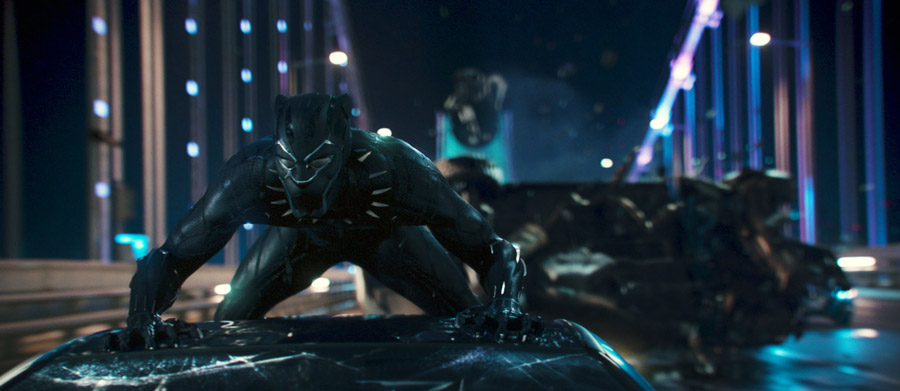Contingent Of Teenagers Rock Pyeongchang

Vincent Zhou of Team USA reacts following his performance in the men’s free figure skating final. Zhou is one of many teenagers who made it to the Winter Games.
David J. Phillip/AP
hide caption
toggle caption
David J. Phillip/AP
The angst of teenage life can be overwhelming. The angst of being an adult and watching teenagers — some of whom aren’t old enough to vote in the U.S. — complete amazing feats of human strength and mental fortitude is … well, also overwhelming. An impressive number of adolescents are not only competing in the 2018 Winter Games. In some cases, they’re winning.
American Chloe Kim, 17, grabbed headlines and hearts with her outstanding gold medal performance in the women’s snowboarding halfpipe. NPR’s Bill Chappell reports that Kim is already considered one of the best snowboarders in history, and her tenacious commitment to scoring well, but also enjoying herself bodes well for her future Olympic prospects.
” ‘Going to my third run I knew I had the gold,’ Kim said. ‘But I also knew I wouldn’t be satisfied taking the gold and knowing that I hadn’t put down my best. That third run was for me — to put down the best run I could do.’ “
Kim also shared her humanity — and her high metabolism — in a few tweets.
Wish I finished my breakfast sandwich but my stubborn self decided not to and now I’m getting hangry
— Chloe Kim (@chloekimsnow) February 13, 2018
Could be down for some ice cream rn
— Chloe Kim (@chloekimsnow) February 12, 2018
Another American, speed skater Maame Biney, turned 18 a few weeks before arriving in South Korea. Biney came to the U.S. when she was 5 and is the first African-American woman to qualify for a U.S. Olympic speedskating team. Biney has an immensely positive spirit.
Smile. That’s the best you can do when you’re having a bad day. It won’t be bad forever. So just keep cheesin’?I’m excited for Saturday and I’m definitely going to give it my all! Thank you guys for all of the supportive messages, means a lot???? #teamusa?? pic.twitter.com/NLHkZswTUw
— Maame Biney (@BineyMaame) February 15, 2018
She had second and fourth place finishes in qualifying races earlier in the week. Biney is ranked second ahead of the 1,500 meter heat scheduled for Saturday night, Korea time.
The baby of Team USA is figure skater Vincent Zhou, who turns 18 in October. The California native had an exuberant performance on Saturday morning in South Korea. While he finished in sixth place, it was clear from his reaction that he was thrilled with his free skate performance. Social media responses highlighted great anticipation of American medal potential in Beijing 2022.
.@TeamUSA‘s 17-year-old @govincentzhou has been absolutely BRILLIANT in his first #WinterOlympics! https://t.co/fmMl0C4Amfpic.twitter.com/UNBhME38lh
— NBC Olympics (@NBCOlympics) February 17, 2018
Zhou and teammate Nathan Chen skated early and then waited anxiously through the men’s free skate on Saturday to see if they could hold their podium positions. Chen, 18, came in to the free skate after a disappointing 17th place in the men’s short program, and wowed the crowd with a historic six quad jumps. But after explosive programs from Japan’s Yuruzu Hanya and Shoma Uno and Spain’s Javier Fernandez, Chen and Zhou landed in fifth and sixth place, respectively.
Holding down the title of the youngest competitor across the Winter Games is Wu Meng, competing with the People’s Republic of China for the freestyle skiing competition in halfpipe. She’s one of many 15-year-olds who made it to Pyeongchang. Wu worked her way up through competitions in the U.S., New Zealand and China, ranking higher each time. The women’s ski halfpipe competition begins Monday.
Other teen Olympic titans include, via NBCSports:
- Jennie-Lee Burmansson (15) — Ski Slopestyle (Sweden)
- Zhang Kexin (15) — Ski Halfpipe (China)
- Alina Zagitova (15) — Figure Skating (Russia)
- Kim Hanul (15) — Figure Skating (South Korea)
- Hiroaki Kunitake (15) — Snowboard Big Air/Slopestyle (Japan)
- Reira Iwabuchi (16) — Snowboard Big Air/Slopestyle (Japan)
- Alice Robinson (16) — Alpine Skiing (New Zealand)
- Ayaulum Amrenova (16) — Moguls (Kazakhstan)
- Nico Porteous (16) — Ski Halfpipe (New Zealand)
The Week in Movie News: 'Black Panther' Starts Off Strong, 'Incredibles 2' Sneak Peek and More
Need a quick recap on the past week in movie news? Here are the highlights:
BIG NEWS
Black Panther broke its first box office records: Marvel has another huge hit on their hands, as Black Panther opens this weekend and already kicked things off with the MCU’s second-best preview screenings gross ever. Read more here.
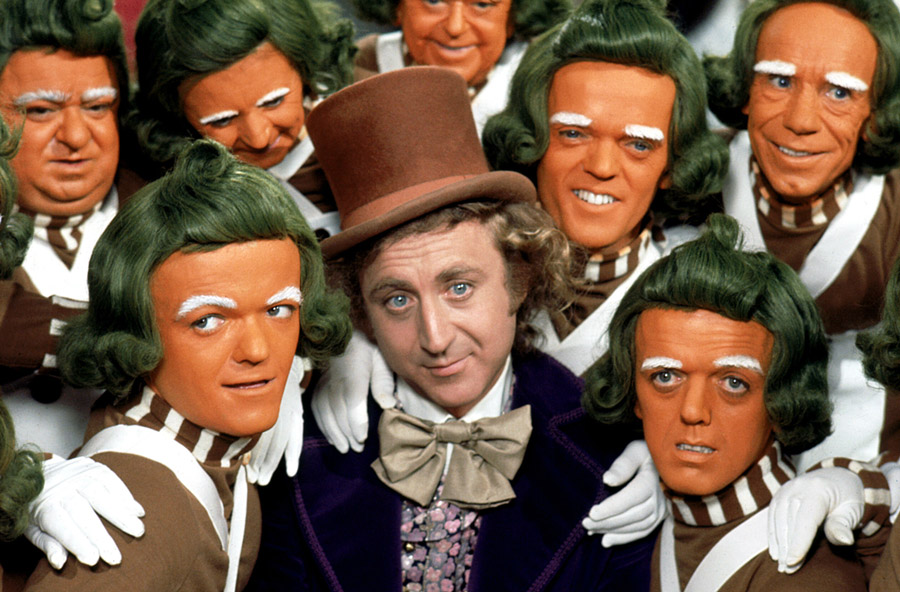
GREAT NEWS
Another Willy Wonka movie is in the works: Normally remakes of classics aren’t immediately labeled “great news,” but a new take on Charlie and the Chocolate Factory is coming from Paddington and Paddington 2 director Paul King, and that’s pretty promising. Read more here.
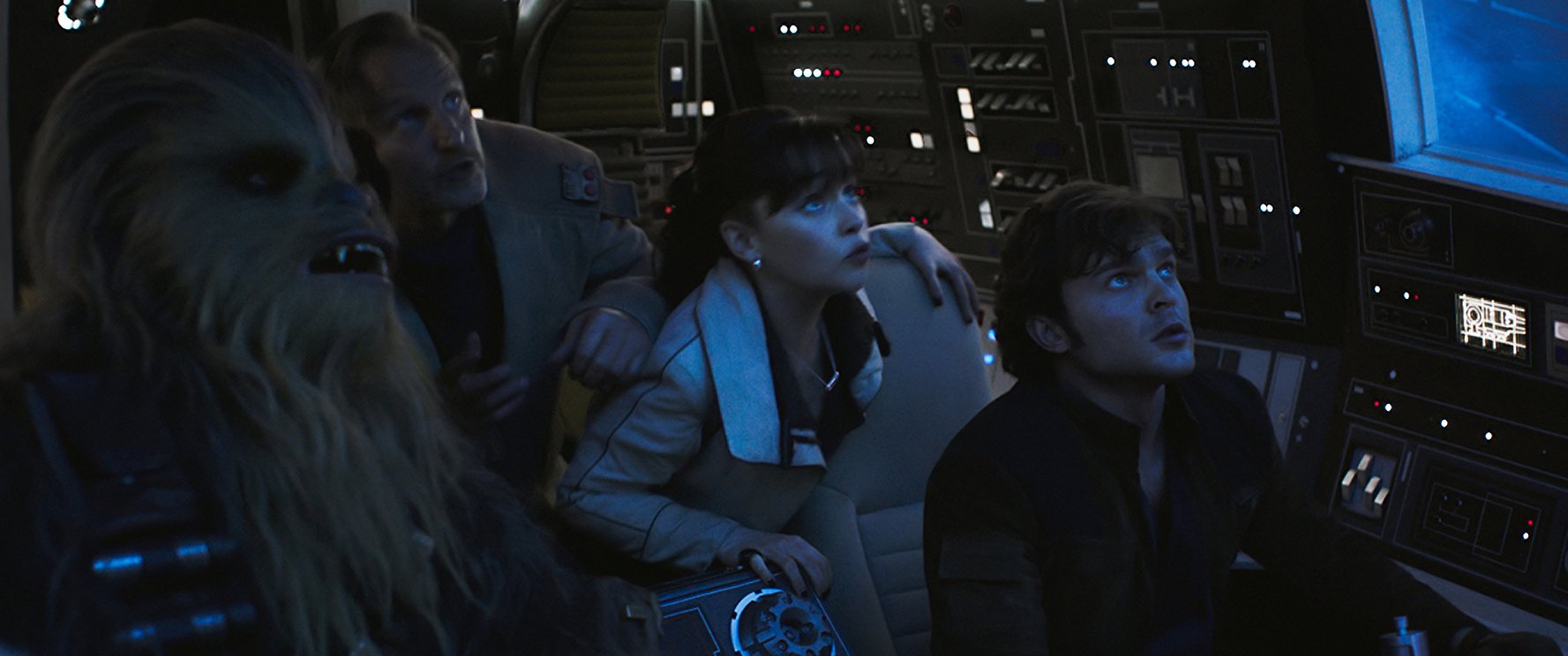
SURPRISING NEWS
Solo revealed another cast member: With only a few more months before the release of Solo: A Star Wars Story, director Ron Howard confirmed that Jon Favreau is voicing an “important” character. Read more here, see Favreau’s later confirmation of which character he’s playing and check out the first look at new Solo toys here and find out which movies influenced the script here.
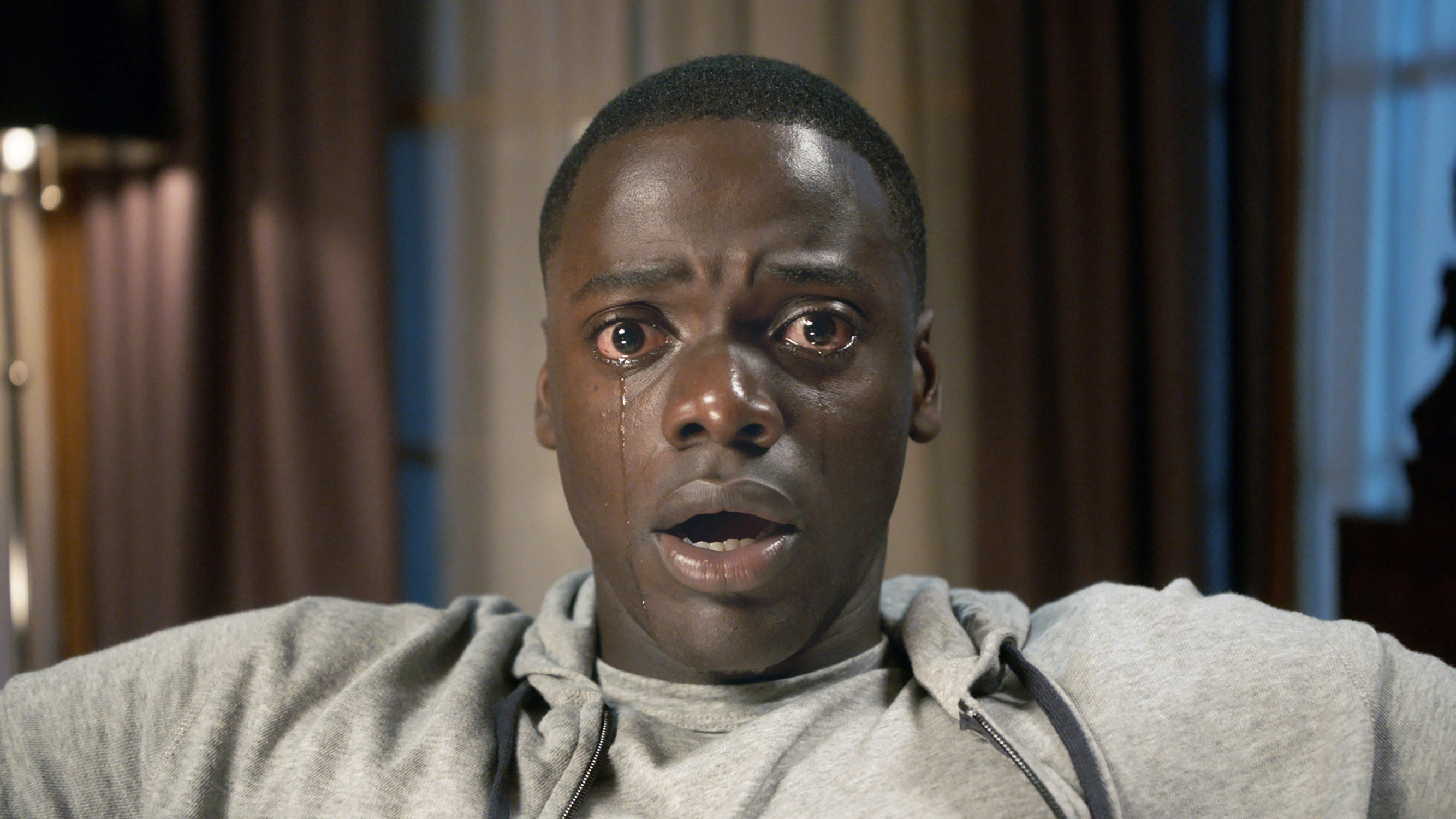
AWARDS BUZZ
Get Out and Call Me By Your Name won more awards: With the Oscars still weeks away, Get Out and Call Me By Your Name upped their awards season game with Writers Guild Awards wins. Read more here and find out how to see Get Out for free in theaters this weekend here.
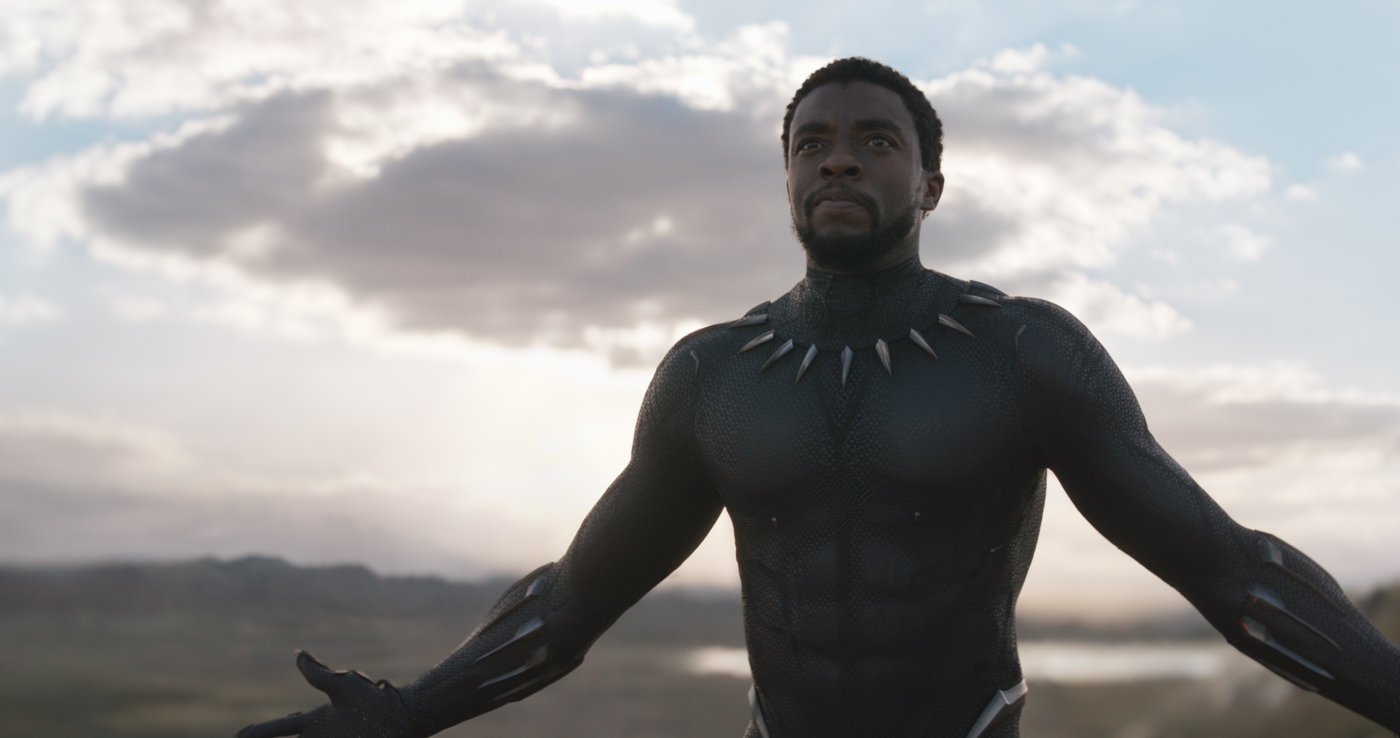
COOL CULTURE
How to prepare for Black Panther: This week saw many primers for moviegoers heading out to see Black Panther in need of some background and set up. Below is a history of the character from comics to the new Marvel Cinematic Universe installment. And we shared more Black Panther-related culture here and here.
[embedded content]

MUST-WATCH TRAILERS
Incredibles 2 shares a peek: The first teaser with a lot of footage from Incredibles 2 arrived in the form of an Olympics sneak peek, and the Pixar sequel looks as good as the original. Watch it below.
[embedded content]
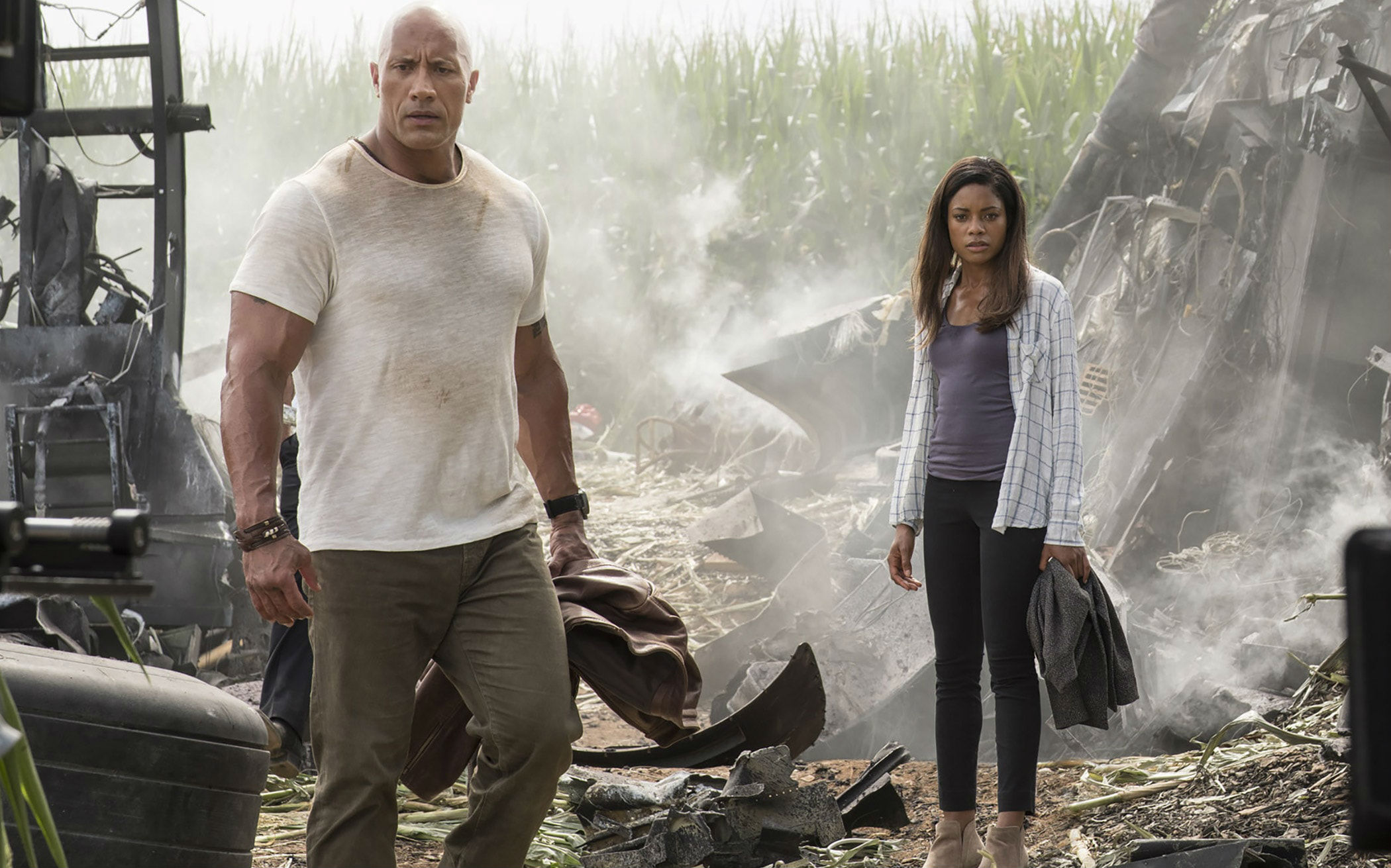
Rampage shows animal experimentation gone wrong: The second trailer for the arcade game adaptation Rampage features Dwayne Johnson and a number of giant animals created through experiments gone wrong. Watch it here:
[embedded content]
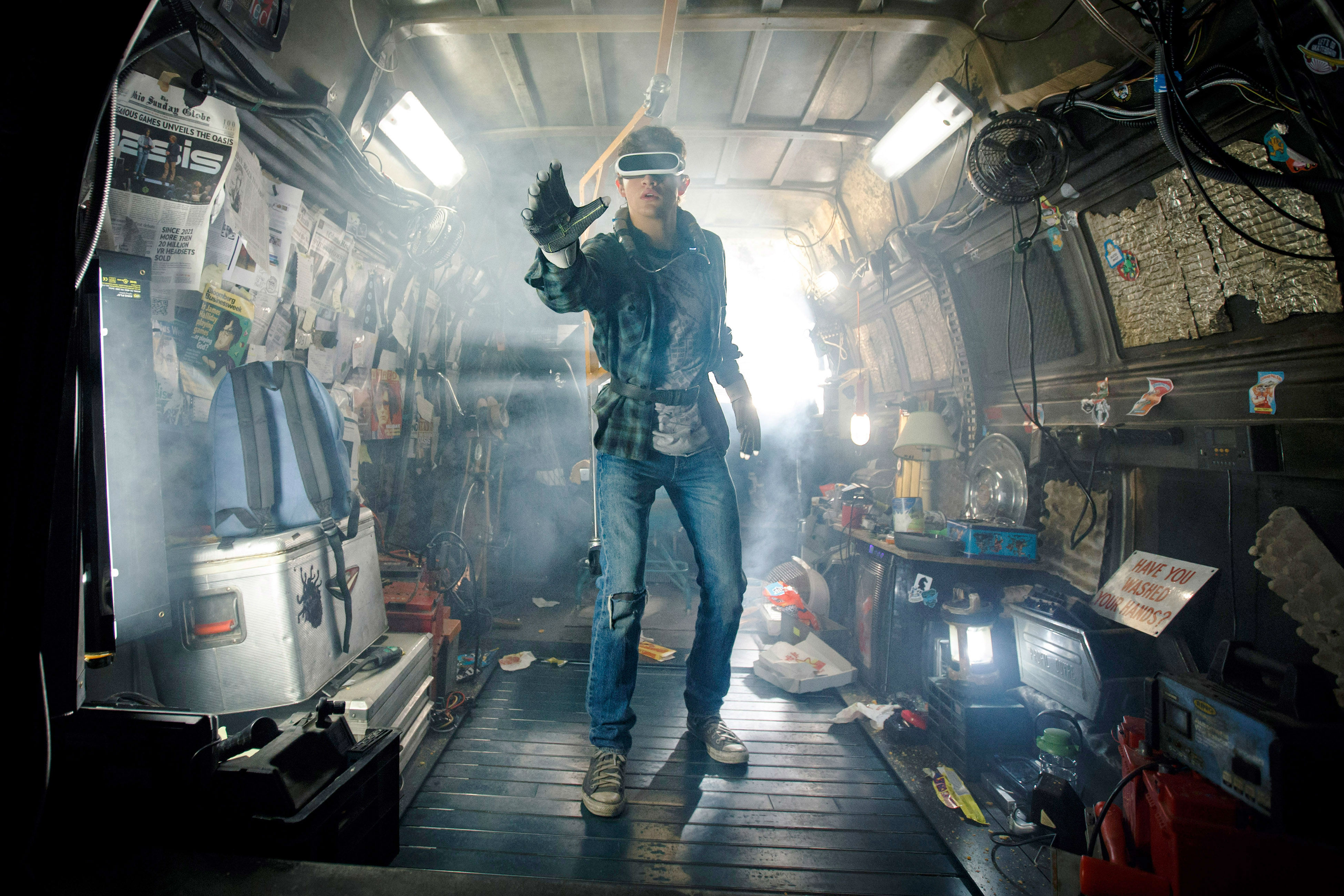
Ready Player One focuses on friendly competition: The new trailer for Steven Spielberg’s Ready Player One shows more of its main characters in love and war, in true reality and virtual reality. Check it out here:
[embedded content]
and
How D'Wayne Edwards Became A Sneaker Legend
D’Wayne Edwards created the Pensole Footwear Design Academy to try and diversify the sneaker business. Edwards was one of the first black designers in the business and created the academy, in part, because of how difficult it was for him to get started.
KELLY MCEVERS, HOST:
Lots of industries acknowledge they have a diversity problem. Maybe it’s with age or gender or race. Our Planet Money podcast wondered, how exactly does an industry begin to change itself? And reporter Kenny Malone says the answer is on your feet.
KENNY MALONE, BYLINE: D’Wayne Edwards was just out of high school – this was in the ’80s – and managed to get a job at LA Gear, the sneaker company, which was great.
D’WAYNE EDWARDS: But I’m in the accounts payable department, just filing papers.
MALONE: Which was not great because sneaker design was his dream job.
EDWARDS: And so I start asking around. And everyone’s saying, well, you have to go to design school, and you have to do this. You have to do that.
MALONE: Edwards couldn’t afford the normal, expensive paths to shoe design. But he did notice that the LA Gear company had these wooden suggestion boxes. And he thought, you know what? While I’m here, what the heck?
EDWARDS: So my suggestion was, hire me as a footwear designer. So I would – every morning before I started my filing-papers job, I would put a sketch in the box. So I did that for six months.
MALONE: He had no idea, but somebody was looking at these sneaker sketches.
ROBERT GREENBERG: The line work was very trendy, a little futuristic-looking.
MALONE: This is Robert Greenberg, president of LA Gear at the time.
GREENBERG: D’Wayne’s talent is to create what does not exist. You know you go to those car shows and they show the futuristic cars?
MALONE: Yeah.
GREENBERG: That’s what he did.
MALONE: Greenberg called Edwards into his office.
EDWARDS: And he had all 180 sketches on his desk. And he was like…
GREENBERG: Here, come in, and sit down. And let’s talk.
EDWARDS: I’ve heard you’re the one that’s been putting these (laughter) sketches in the box.
GREENBERG: You know, look at this – looks nice. What do you want to do?
EDWARDS: What do you want me to do with these things? You know, did you go to design school? What’s up? And I was like, well, no, I just graduated from Inglewood High School about seven months ago. And he was like, well, you have talent, and I like your ambition. And I’m going to offer you a entry-level design job if you want to take it.
MALONE: And that is the story of how D’Wayne Edwards became one of the first black designers in the sneaker industry. His career skyrocketed from there. Eventually he became the lead designer at Nike for the Air Jordan brand. But Edwards always wondered. Why did a kid like him even need this suggestion box miracle to launch his career in the first place? And so about 10 years ago, he quit his dream job to build a new way to launch careers. He built one of the first sneaker design schools.
EDWARDS: You see that white shoe with the navy midsole on the wall right there?
MALONE: Edwards is surrounded by about eight students trying to explain to them how sneaker color blocking can make a shoe stand out even from across the room.
EDWARDS: That’s why blocking’s important. And it started on basketball courts.
MALONE: The Pensole Footwear Design Academy in Portland, Ore., is some hybrid of a vocational school, a design college and an apprenticeship.
EDWARDS: But because I wasn’t able to go to school, I want to figure out a way to make it free so kids like me don’t get lost.
MALONE: So Edwards gets sneaker companies to fund scholarships for many students, and the sneaker companies get this pipeline of undiscovered talent.
EDWARDS: So the other thing that we – oh, Precious.
MALONE: Almost on cue, one of Edwards’ first students shows up to say hi.
EDWARDS: Precious is an alumni. She work at Jordan now. How are you doing?
PRECIOUS HANNAH: I’m good.
MALONE: Precious Hannah now works at Nike and still comes back as a mentor.
HANNAH: So I think it’s very important for others to understand, like, you know, you don’t have to go to this prestige school just to understand something. You could come somewhere where someone understands how to do things and just, like, give you the knowledge like D’Wayne gave me.
MALONE: In recruiting for the school, Edwards says he makes a special effort to find students who do not look like the industry looks right now. And there aren’t great statistics about diversity in the footwear design field, but the number of non-white designers does seem to be growing, and a big part of that is the Pensole Academy.
EDWARDS: Real quick, I’ll just show you a couple of things.
MALONE: Yeah, sure.
EDWARDS: So we keep a…
MALONE: Edwards walks over to a wall covered in different companies’ shoeboxes.
EDWARDS: And we put shoeboxes up on the wall when they get jobs at different places, for whatever said company…
MALONE: Every single one of these is a job.
EDWARDS: Yeah.
MALONE: One, two, three, four, five, six.
I’ll save you the counting. It’s more than 300 graduates who’ve wound up working at footwear companies.
EDWARDS: All the companies have a diversity agenda. Like, oh, we need more people of color. Oh, we need this. We need that. So in a lot of ways, with me starting this is to show the industry, this is what happens when you actually focus in on something.
MALONE: Kenny Malone, NPR News.
Copyright © 2018 NPR. All rights reserved. Visit our website terms of use and permissions pages at www.npr.org for further information.
NPR transcripts are created on a rush deadline by Verb8tm, Inc., an NPR contractor, and produced using a proprietary transcription process developed with NPR. This text may not be in its final form and may be updated or revised in the future. Accuracy and availability may vary. The authoritative record of NPR’s programming is the audio record.
An Out-Of-Network Lab, An Elaborate Urine Test And Then A Surprise Bill

Urine testing to diagnose illness or to detect the presence of drugs is generally routine. But a woman who gave her doctor a urine sample months after back surgery got socked with a huge bill.
SPL/Science Source
hide caption
toggle caption
After Elizabeth Moreno had back surgery in late 2015, her surgeon prescribed an opioid painkiller and a follow-up drug test that seemed routine — until the lab slapped her with a bill for $17,850.
A Houston lab had tested her urine sample for a constellation of legal and illicit drugs, many of which Moreno says she had never heard of, let alone taken.
“I was totally confused. I didn’t know how I was going to pay this,” said Moreno, 30, who is finishing a degree in education at Texas State University in San Marcos, and is pregnant with twins.
Her bill shows that Sunset Labs LLC charged $4,675 to check her urine for a slew of different types of opioids: $2,975 for benzodiazepines, a class of drugs for treating anxiety, and $1,700 more for amphetamines. Tests to detect cocaine, marijuana and phencyclidine, an illegal hallucinogenic drug also known as PCP or angel dust, added $1,275 more.
The lab also billed $850 to test for buprenorphine, a drug used to treat opioid addiction, and tacked on an $850 fee for two tests to verify that nobody had tampered with her urine specimen.
Total bill: $17,850 for lab tests that her insurer, Blue Cross and Blue Shield of Texas, refused to cover, apparently because the lab was not in her insurance network. The insurer sent Moreno an “explanation of benefits” that says it would have valued the work at just $100.92.
Moreno’s father, in a complaint to the Texas attorney general’s office about the bill, identified the Houston surgeon who ordered the costly test as Dr. Stephen Esses. His office told Kaiser Health News the surgeon would have no comment.
Sunset Labs is part of a network of pain clinics and other medical businesses founded by Houston anesthesiologist Phillip C. Phan, according to Texas secretary of state filings and court records. Court records say Phan’s companies also own the facility where Moreno had her operation.
Three experts contacted by KHN said the lab grossly overcharged; they also doubted the need for the test.
“This just blows my mind,” said Jennifer Bolen, a former federal prosecutor and lab and pain management consultant. “It’s very high and incredibly out of the norm.”
Dan Bowerman, a medical fraud expert, called the lab bill “outrageous” and “unconscionable” and said it should have prompted an investigation.
“Sounds real fishy,” added Charles Root, a veteran industry adviser. He wondered if the lab had “misplaced the decimal point,” because such a test should cost a few hundred dollars, tops.
The lab disagrees.
Sunset’s billings “are in line with the charges of competing out-of-network labs in the geographical area,” lab attorney Justo Mendez said in an emailed statement.
Mendez said pain doctors agree that extensive urine testing is “the best course of action” and that a lab “is not in the position” to question tests ordered by a doctor.
Testing Booms As Opioid Epidemic Rages
Urine testing for patients with chronic pain has grown explosively over the past decade amid a rising death toll from opioid abuse. Pain doctors say drug testing helps them make sure patients are taking the drugs as prescribed and not mixing them with illegal substances.
Yet the testing boom costs billions of dollars annually and has raised concerns that some labs and doctors run urine tests needlessly — or charge exorbitant rates — to boost profits.
Some insurers have refused to pay, which can leave patients like Moreno threatened with ruinously high bills they had no idea they had incurred.
“Surprise bills larded with unexpected expenses and little explanation inflict sticker shock on vulnerable patients,” said James Quiggle, communications director of the Coalition Against Insurance Fraud, whose members include insurers, consumer groups and government agencies. Quiggle said many “puffed-up bills straddle a fine line between abuse and outright fraud.”
Liz Moreno thought she was done paying for her back surgery in 2015 until a $17,800 bill for a urine drug test showed up nine months later. Her father, Paul Davis, a retired doctor from Ohio, settled the bill with the company for $5,000 to protect Liz’s credit rating.
Julia Robinson for KHN
hide caption
toggle caption
Julia Robinson for KHN
Moreno said her insurance covered the disc removal surgery in December 2015. She said the operation went well and she weaned herself off the hydrocodone pain pills. To her surprise, during a second appointment return about a month later, the surgeon’s office asked her to leave a urine sample.
“I didn’t think anything of it,” Moreno said of the test. “I said fine, whatever.”
More than a year later, she said, the lab phoned while she was driving and asked her to pay the $17,850 bill. The lab then sent her an invoice, dated March 10, 2017, which states: “based upon information from your health plan, you owe the amount shown.”
Luckily, her father, Dr. Paul Davis, was visiting her in Texas at the time. Davis, 66, is a retired family practice doctor from Findlay, Ohio.
Davis doubted the need for the test, not to mention what he thought was a sky-high price. He said the University of Findlay, where he helped train physician assistants, gave applicants a basic drug test at a cost of $174, while the local juvenile courts in Ohio paid $10 for a simple drug screen.
Fearing the bill would ruin his daughter’s credit scores, Davis said, he called Sunset and settled it in April 2017 by paying $5,000, which he said he now regrets. The lab sent Moreno a receipt that said it discounted her bill because of “financial need/hardship.”
Asked for comment, Blue Cross spokesman James Campbell said he couldn’t discuss a specific case but noted:
“We are disappointed as well as concerned about transparency whenever [any] member is surprised by an excessive charge for a seemingly routine service or received services that may not have been medically necessary.”
Campbell also said the lab was out-of-network and “we do not control how much they charge for services rendered.” The insurer encourages patients to confirm that all medical care they seek comes from medical providers in the Blue Cross network, he added.
Prices for urine tests can vary widely depending upon complexity and the technology used. Some doctors’ offices use a simple cup test, which can detect several classes of drugs on the spot. These tests rarely cost more than $200, and typically much less.
Bills climb higher when labs check for levels of multiple drugs and bill for each one, a practice insurers argue is seldom medically justified. But even labs sued by insurers alleging wildly excessive testing typically have billed $9,000 or less, court records show. One insurer sued a lab for charging $1,845 for a drug test, for instance.
Davis said Sunset Labs ignored his requests for a full explanation of the charges. In May, he filed a written complaint about the bill with the Texas attorney general’s office that included a copy of the bill and accused the lab of “price gouging of staggering proportions.”
“Young people just starting out, such as my daughter, may not have the ability to pay and this could result in damaged credit ratings or even bankruptcy,” he wrote.
Davis got a letter back from Attorney General Ken Paxton, who said the office would “review the information.” A spokesperson for Paxton told KHN: “We have received complaints about that business, but we can’t comment on anything else.” Sunset attorney Mendez said the lab is “not aware” of any such complaints.
In an interview, Davis also questioned the need for his daughter’s urine test because she received opioids only for a short period and the results would have had no impact on her treatment. In his complaint to the attorney general, Davis said the surgeon told him he ordered the tests because he feared possible retribution from the state medical licensing board for not testing patients who had been prescribed an opioid. The Texas Medical Board doesn’t require urine tests for patients receiving opioids for short-term pain, said spokesman Jarrett Schneider. That’s a “question of independent medical judgment as to whether the physician believes a drug test should be required,” he said.
Negative Reviews
Sunset Labs has an “F” rating with the Houston Better Business Bureau, which on its website posts an August 2017 complaint from a patient charged $16,150 for a urine test.
“This is not covered under my health insurance so I am expected to pay this excessive bill,” the complaint reads.
A second website that publishes government billing numbers of doctors and medical businesses includes a comment section with more than a dozen negative “reviews,” mostly complaints that the lab slammed patients with thousands of dollars in fees their insurers balked at paying.
In a pair of lawsuits filed in 2015, three doctors seeking to quit working at pain clinics operated by Phan accused the facilities of improper billing practices, including unnecessary urine testing. The doctors said they feared losing their medical licenses unless they severed their ties.
In one suit, Drs. Purvi Patel and Lance LaFleur also alleged that the pain clinics “pressured” doctors to overprescribe medical gear and genetic tests to insured patients “regardless of medical necessity.” The case did not go forward because the doctors did not pursue it. Neither doctor would comment.
In the second legal case, pain specialist Dr. Baominh Vinh said he resigned in April 2015 “based on certain questionable business practices … that are inconsistent with my ethical boundaries.” Vinh also alleged urine testing was overused. In a countersuit against Vinh, the pain clinics called his allegations a “falsehood” to justify violation of his employment contract.
The parties settled in March of last year. Terms are confidential, but a lawyer for the pain clinics said Vinh paid money to the company “and not vice versa.”
This is the debut of a monthly feature from Kaiser Health News and NPR that will dissect and explain real medical bills in order to shed light on prices in U.S. health care and to help patients learn how to be more active in managing costs. Do you have a medical bill that you’d like us to see and scrutinize? Submit it here and tell us the storybehind it.

